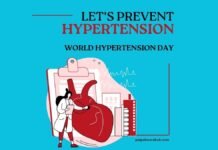
Beijing: Covid-19 is now creating panic in China. Here, on one hand, there is no place to set foot in the hospitals, and on the other hand, the morgues are full of dead bodies. Due to the coronavirus, the condition is such that more than ten thousand dead bodies reached the morgue of Shanghai in a day. According to the news coming from China, the number of people infected with the epidemic is increasing rapidly here. The video of the mortuary of a hospital here is also going viral on social media.
Let me tell you, recently, a hospital in Shanghai issued a statement on the social media platform. The statement said, “In this tragic battle, the whole of Greater Shanghai will fall.” The hospital also predicted that half of the city’s 25 million people would be infected by the virus. The hospital warned staff they face an “uphill battle” with the virus.
Double the number of patients in the emergency ward
Over the past few days, the number of emergency calls in Shanghai has increased to 120. According to statistics, on 28 December, 48,534 calls were made to 120 in Shanghai and the ambulance made 7,400 trips. Mainland The Paper in China published the news on 30 December. He wrote, On December 29, Chen Erzhen, deputy director of Ruijin Hospital affiliated with Shanghai Jiao Tong University School of Medicine, said, “The number of patients in the emergency ward has doubled with the increase in the number of people infected with the new variant. Emergency staff is under tremendous pressure.

Out of 80 percent, 50 percent of the patients are elderly
Chen Erjen said that for the past two days the number of patients coming to the emergency ward has reached 1,500. He disclosed that 40% to 50% of the 80% of infected people in this ward are elderly patients. He said that the patients admitted to the hospital mainly include those who are in critical condition. They also include serious patients suffering from hypoxemia, chest tightness, and shortness of breath.





















































